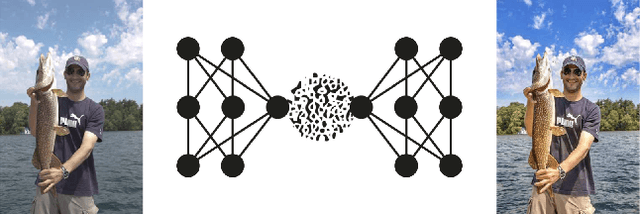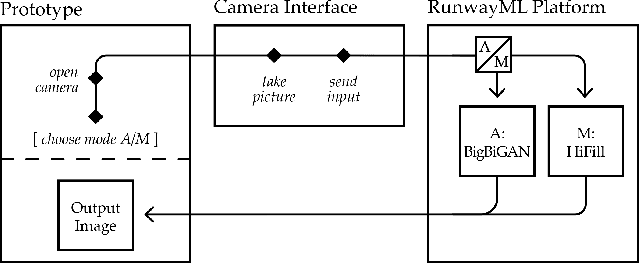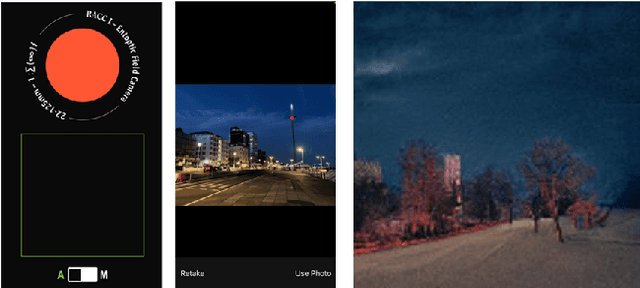Michael Heidt
The Entoptic Field Camera as Metaphor-Driven Research-through-Design with AI Technologies
Jan 23, 2023



Abstract:Artificial intelligence (AI) technologies are widely deployed in smartphone photography; and prompt-based image synthesis models have rapidly become commonplace. In this paper, we describe a Research-through-Design (RtD) project which explores this shift in the means and modes of image production via the creation and use of the Entoptic Field Camera. Entoptic phenomena usually refer to perceptions of floaters or bright blue dots stemming from the physiological interplay of the eye and brain. We use the term entoptic as a metaphor to investigate how the material interplay of data and models in AI technologies shapes human experiences of reality. Through our case study using first-person design and a field study, we offer implications for critical, reflective, more-than-human and ludic design to engage AI technologies; the conceptualisation of an RtD research space which contributes to AI literacy discourses; and outline a research trajectory concerning materiality and design affordances of AI technologies.
 Add to Chrome
Add to Chrome Add to Firefox
Add to Firefox Add to Edge
Add to Edge